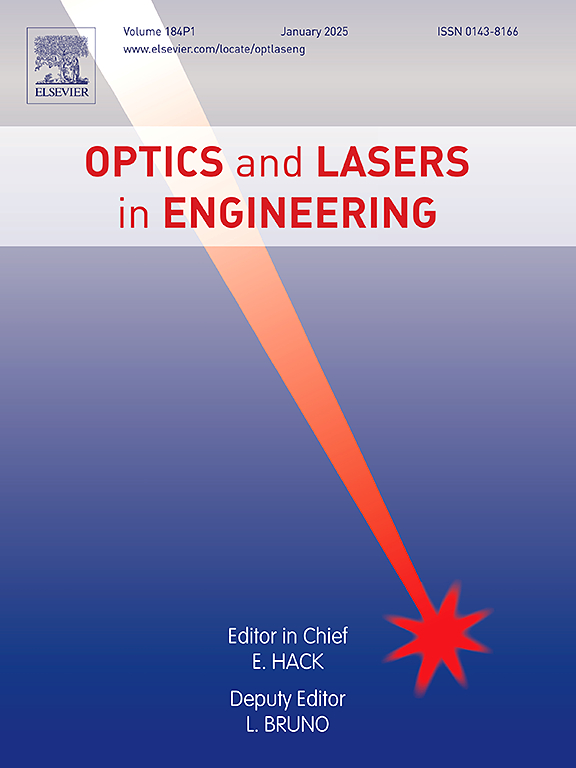High-quality computer-generated holography based on Vision Mamba
IF 3.5
2区 工程技术
Q2 OPTICS
引用次数: 0
Abstract
Deep learning, especially through model-driven unsupervised networks, offers a novel approach for efficient computer-generated hologram (CGH) generation. However, current model-driven CGH generation models are primarily built on the convolutional neural networks (CNNs), which struggle to achieve high-quality hologram reconstruction due to limited receptive fields. Although Vision Transformers (ViTs) excel at processing more distant visual information, they are burdened with huge computational load. The recent emergence of Vision Mamba (ViM) presents a promising avenue to address these challenges. In this study, we introduce the CVMNet, a lightweight model that combines the precision of convolutional layers for local feature extraction and the long-range modeling abilities of state-space models (SSMs) to enhance the quality of CGHs. By employing parallel computation for the ViM to handle feature channels, the CVMNet effectively reduces the number of model parameters. Numerical reconstruction and optical experiments demonstrate that the CVMNet can generate 1080P high-quality holograms in just 16 ms, boosting an average PSNR of over 30 dB and effectively suppressing speckle noise in reconstructed images. Additionally, the CVMNet showcases robust generalization capabilities.
基于 Vision Mamba 的高质量计算机生成全息技术
深度学习,尤其是通过模型驱动的无监督网络,为高效的计算机生成全息图(CGH)提供了一种新方法。然而,目前模型驱动的全息图生成模型主要建立在卷积神经网络(CNN)基础上,由于感受野有限,很难实现高质量的全息图重建。虽然视觉变换器(ViT)在处理更远的视觉信息方面表现出色,但却要承担巨大的计算负荷。最近出现的 Vision Mamba(ViM)为解决这些难题提供了一条大有可为的途径。在本研究中,我们引入了 CVMNet,这是一种轻量级模型,它结合了卷积层用于局部特征提取的精度和状态空间模型(SSM)的远距离建模能力,从而提高了 CGH 的质量。通过采用 ViM 并行计算来处理特征通道,CVMNet 有效地减少了模型参数的数量。数值重建和光学实验证明,CVMNet 只需 16 毫秒即可生成 1080P 高质量全息图像,平均 PSNR 提高了 30 分贝以上,并有效抑制了重建图像中的斑点噪声。此外,CVMNet 还展示了强大的泛化能力。
本文章由计算机程序翻译,如有差异,请以英文原文为准。
求助全文
约1分钟内获得全文
求助全文
来源期刊

Optics and Lasers in Engineering
工程技术-光学
CiteScore
8.90
自引率
8.70%
发文量
384
审稿时长
42 days
期刊介绍:
Optics and Lasers in Engineering aims at providing an international forum for the interchange of information on the development of optical techniques and laser technology in engineering. Emphasis is placed on contributions targeted at the practical use of methods and devices, the development and enhancement of solutions and new theoretical concepts for experimental methods.
Optics and Lasers in Engineering reflects the main areas in which optical methods are being used and developed for an engineering environment. Manuscripts should offer clear evidence of novelty and significance. Papers focusing on parameter optimization or computational issues are not suitable. Similarly, papers focussed on an application rather than the optical method fall outside the journal''s scope. The scope of the journal is defined to include the following:
-Optical Metrology-
Optical Methods for 3D visualization and virtual engineering-
Optical Techniques for Microsystems-
Imaging, Microscopy and Adaptive Optics-
Computational Imaging-
Laser methods in manufacturing-
Integrated optical and photonic sensors-
Optics and Photonics in Life Science-
Hyperspectral and spectroscopic methods-
Infrared and Terahertz techniques
 求助内容:
求助内容: 应助结果提醒方式:
应助结果提醒方式:


